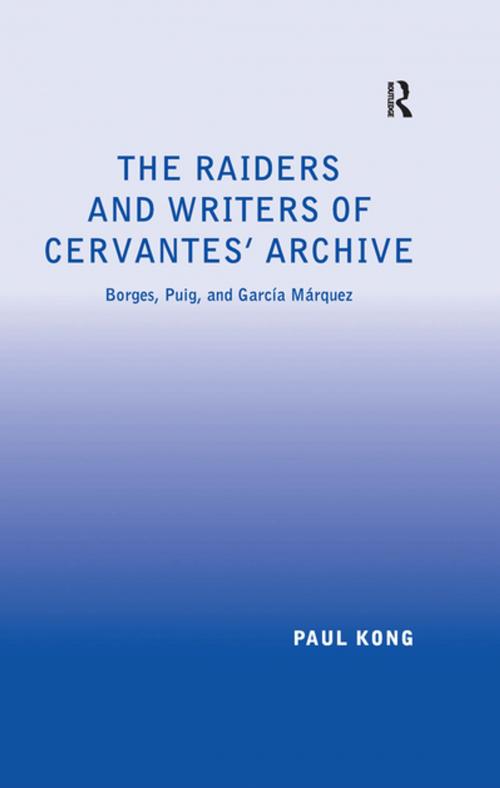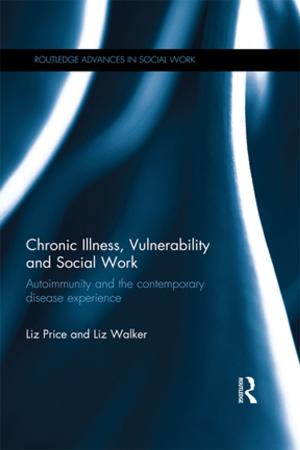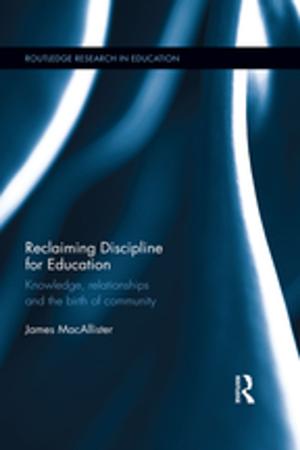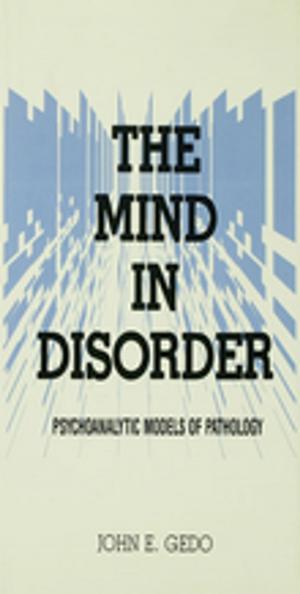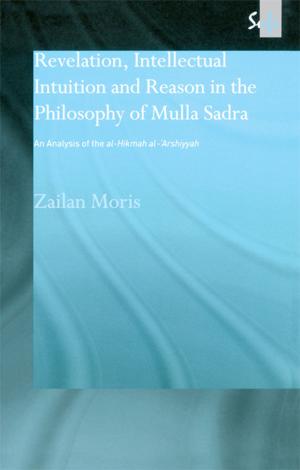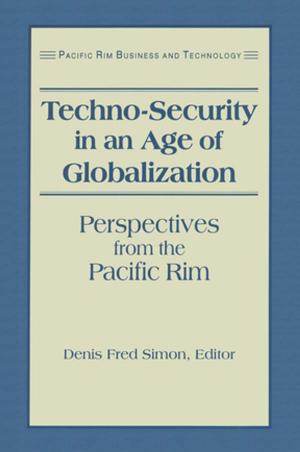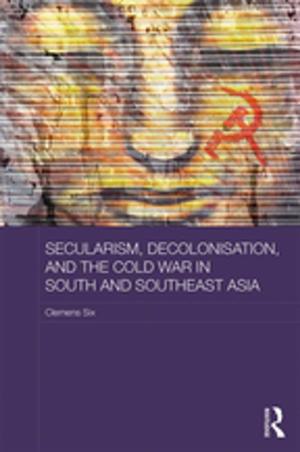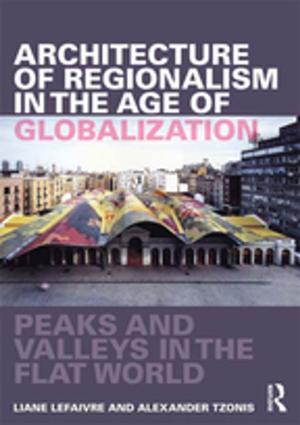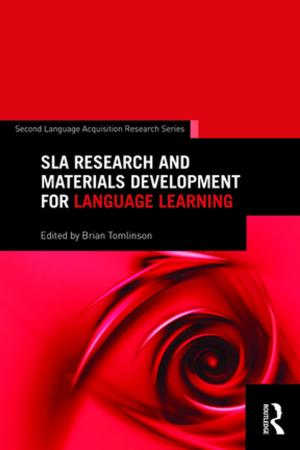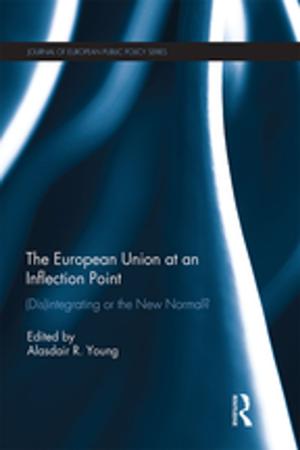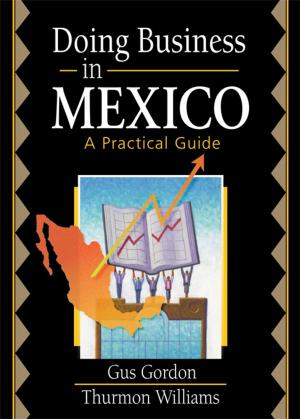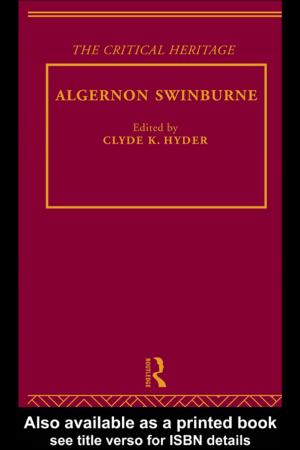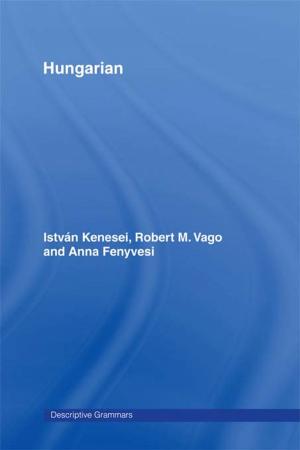The Raiders and Writers of Cervantes' Archive
Borges, Puig, and García Márquez
Fiction & Literature, Literary Theory & Criticism| Author: | Paul Kong | ISBN: | 9781351883245 |
| Publisher: | Taylor and Francis | Publication: | December 5, 2016 |
| Imprint: | Routledge | Language: | English |
| Author: | Paul Kong |
| ISBN: | 9781351883245 |
| Publisher: | Taylor and Francis |
| Publication: | December 5, 2016 |
| Imprint: | Routledge |
| Language: | English |
Within the context of Miguel de Cervantes Saavedra and his influence on Jorge Luis Borges, Manuel Puig and Gabriel Marquez, Paul Kong brings a variety of theoretical perspectives to bear as he analyzes the concepts of the archive and the manuscript. Setting the stage with an exploration of the intricate and intriguing relationship between the archive and the manuscript, Kong questions the apparently natural association between the two. In the light of Kong's historically contextualized and patient exegesis, the ideological nature of the archive, evident in its charge to serve as a totalizing habitat, stands in contrast with the manuscript that resists attempts to contain it. The playful responses of Borges, Puig and Marquez as they mine the "archive" of Cervantes' works support the anti-colonial dimension of Latin American literature and further problematize the relationship between archive and manuscript. The book concludes with a discussion of the future of archival discourse, especially in the setting of the virtual reality of the Internet and of globalization. Carefully grounded by Kong's close readings and supported by a wealth of astute references and allusions to writers as diverse as Virgil, Wordsworth, and Dickens, The Raiders and Writers of Cervantes' Archive is sure to provoke and intrigue Latin American scholars, narrative theorists, archivists, and those interested in issues related to cultural domination, ideology, and cyberspace.
Within the context of Miguel de Cervantes Saavedra and his influence on Jorge Luis Borges, Manuel Puig and Gabriel Marquez, Paul Kong brings a variety of theoretical perspectives to bear as he analyzes the concepts of the archive and the manuscript. Setting the stage with an exploration of the intricate and intriguing relationship between the archive and the manuscript, Kong questions the apparently natural association between the two. In the light of Kong's historically contextualized and patient exegesis, the ideological nature of the archive, evident in its charge to serve as a totalizing habitat, stands in contrast with the manuscript that resists attempts to contain it. The playful responses of Borges, Puig and Marquez as they mine the "archive" of Cervantes' works support the anti-colonial dimension of Latin American literature and further problematize the relationship between archive and manuscript. The book concludes with a discussion of the future of archival discourse, especially in the setting of the virtual reality of the Internet and of globalization. Carefully grounded by Kong's close readings and supported by a wealth of astute references and allusions to writers as diverse as Virgil, Wordsworth, and Dickens, The Raiders and Writers of Cervantes' Archive is sure to provoke and intrigue Latin American scholars, narrative theorists, archivists, and those interested in issues related to cultural domination, ideology, and cyberspace.
